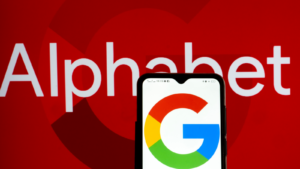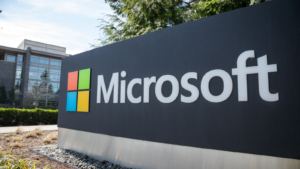It’s worked out well for investors. The S&P 500 has gained 13% year-to-date and is up 82% over the past five years. Meanwhile, the Nasdaq Composite is up by 14% year-to-date and has more than doubled over the past five years.
Some Magnificent Seven stocks look like they can continue to deliver returns for patient investors. Rising revenues and net profit margins combined with multiple growth catalysts offer plenty of encouragement. Each of these three stocks is in the middle of a correction. Some investors prefer to claim some of their gains, but a lengthy time horizon can still lead to enticing returns.
Alphabet (GOOG, GOOGL)

Alphabet (NASDAQ:GOOG, NASDAQ:GOOGL) is an undervalued tech stock despite a 21% year-to-date gain. The assertion sounds more challenging to support based on the company’s 180% gain over the past five years. However, a 24.5 P/E ratio, rising revenue, and soaring profit margins suggest that the stock has more room to run.
Google’s parent company delivered 14% year-over-year (YOY) revenue growth in the second quarter. While advertising contributed to most of the company’s total revenue, Google Cloud makes up more than 10% of total sales. Artificial intelligence should boost the latter, along with its profits. Alphabet generated $23.6 billion in net income, which was 29% higher than in the same period last year.
Alphabet has plenty of fans on Wall Street who believe the price can go higher. The stock is rated as a Strong Buy among 37 analysts, with a projected 23% upside from current levels. The stock received 30 “Buy” ratings and seven “Hold” ratings. The highest price target of $240 per share indicates that shares can rally by an additional 44%.
Microsoft (MSFT)

Microsoft (NASDAQ:MSFT) is another tech giant ready to deliver gains for patient investors. The stock has a higher P/E ratio of 35, but multiple growth catalysts have supported a 5-year gain of roughly 200%.
The firm’s Q4 FY24 results indicate that the business is still growing. Revenue increased 15% to $64.7 billion, while net income increased by 10% to $22.0 billion. Microsoft ended the quarter with an impressive 34% net profit margin.
Microsoft Cloud was once again the key catalyst for the company’s success. Cloud revenue grew by 21% to reach $36.8 billion. It’s become normal for Microsoft Cloud to make up more than half of the company’s total revenue. However, other segments of Microsoft’s underlying business model also grew. Productivity and Business Processes revenue increased by 11%, LinkedIn was up by 10%, and search and news advertising revenue increased by 19%.
Amazon (AMZN)

Amazon (NASDAQ:AMZN) has delivered a 12% year-to-date gain and is up by 84% over the past five years. It’s also rated as a Strong Buy among 39 analysts with a projected 34% upside from current levels. Artificial intelligence is fueling the optimism.
Revenue increased 10% to $148.0 billion, while net income roughly doubled to $13.5 billion. The net profit margin was 9.1% for the quarter.
While investors weren’t happy about the guidance, there was a silver lining. The tech giant reported 19% YOY growth for Amazon Web Services. Cloud revenue should continue to grow as more companies embrace artificial intelligence. Advertising revenue was another positive, as that segment grew by 20%.
Amazon’s status as a leading online marketplace makes it more resistant to economic slowdowns. The company’s acquisition of Whole Foods in 2017 has bolstered its physical presence, and the recent correction has made Amazon stock more affordable.
On this date of publication, Marc Guberti held long positions in GOOG, MSFT and AMZN. The opinions expressed in this article are those of the writer, subject to the InvestorPlace.com Publishing Guidelines.
On the date of publication, the responsible editor did not have (either directly or indirectly) any positions in the securities mentioned in this article.
Marc Guberti is a finance freelance writer at InvestorPlace.com who hosts the Breakthrough Success Podcast. He has contributed to several publications, including the U.S. News & World Report, Benzinga, and Joy Wallet.
